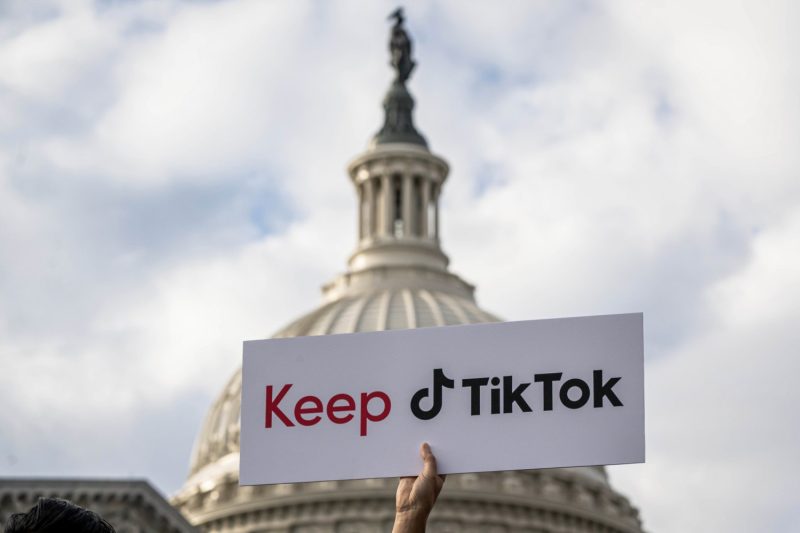The Congress has recently approved a TikTok ban as part of a broader effort to address concerns related to national security and data privacy. While this move signifies a significant development in the ongoing debate surrounding the popular social media app, there are many factors at play that could potentially delay the ban from taking effect for several years.
One key obstacle to the immediate implementation of the TikTok ban is the complex legal and regulatory process involved in enforcing such a decision. The ban must navigate a labyrinth of bureaucratic procedures, including legal challenges, regulatory approvals, and potential negotiations with TikTok’s parent company, ByteDance. This lengthy process could see the ban tied up in legal wrangling and administrative hurdles for an extended period before it can be fully enforced.
Moreover, the global nature of TikTok’s operations presents another set of challenges that could stall the ban. As an international company with a presence in multiple countries, ByteDance has the resources and legal expertise to mount a robust defense against the ban. The company could leverage its international footprint to seek relief from foreign courts or regulatory bodies, further complicating the enforcement of the ban.
In addition to legal and regulatory obstacles, the TikTok ban faces significant opposition from various stakeholders, including users, influencers, and industry groups. These parties may launch advocacy campaigns, file lawsuits, or engage in other forms of protest to challenge the ban and delay its implementation. Their efforts could create public backlash, political pressure, and additional legal hurdles that slow down the ban’s progress.
Furthermore, the rapidly evolving nature of the tech industry means that the landscape could look very different by the time the TikTok ban is ready to take effect. New technologies, platforms, and trends could emerge, shifting the focus away from TikTok and reducing the urgency of enforcing the ban. Policymakers may also be forced to re-evaluate their stance on the ban based on changing circumstances, further delaying its implementation.
Overall, while the Congress-approved TikTok ban represents a significant step towards addressing national security and data privacy concerns, it could be years before the ban actually takes effect. Legal, regulatory, international, political, and technological challenges all stand in the way of swift enforcement, highlighting the complex and multifaceted nature of regulating the tech industry in the digital age.
